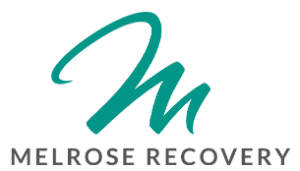Tizanidine Side Effects
Tizanidine Side Effects – Welcome to Melrose Recovery, your pathway to transformation and healing. Located in the vibrant heart of Los Angeles, California just moments away from iconic Hollywood and the picturesque beaches of Santa Monica and Venice, we are dedicated to changing lives. Since 2015, our comprehensive Tizanidine addiction treatment approach encompasses detoxification, residential care, and aftercare services, all tailored to meet each individual’s unique needs on their recovery journey.
Led by a compassionate team of addiction professionals and counselors, we offer a range of therapy programs designed to support and guide individuals suffering Tizanidine abuse toward lasting sobriety. At Melrose Recovery, we believe in the power of personalized care and diverse treatment options to pave the way for a brighter future.

Young people running in nature
Understanding Tizanidine: Uses, Effects, and Role in Recovery – Tizanidine Side Effects
What Is Tizanidine? – Tizanidine Side Effects
Tizanidine is a prescription medication used to manage muscle spasticity. Commonly available in tablet or capsule form, it is often prescribed for individuals with conditions such as multiple sclerosis or spinal cord injuries. Tizanidine is the generic version of the brand-name drug Zanaflex. It functions by reducing nerve signals in the spinal cord that cause muscle tightness and spasms.
At Melrose Recovery, Tizanidine may be part of a broader treatment plan, particularly for clients experiencing muscle spasms as a result of withdrawal symptoms during substance use recovery. Our experienced and licensed clinicians evaluate each individual to determine whether medication like Tizanidine is appropriate.
How Tizanidine Works – Tizanidine Side Effects
Tizanidine is classified as an alpha-2-adrenergic agonist, a type of medication that decreases nerve activity in the spinal cord. By dampening these signals, it helps reduce muscle spasms and improves mobility and comfort for the patient.
When Is Tizanidine Used? – Tizanidine Side Effects
Tizanidine is primarily prescribed for:
-
Muscle spasms
-
Muscle tightness
-
Pain due to conditions like multiple sclerosis or spinal cord injuries
-
Spasticity linked to withdrawal from substances such as drugs or alcohol
Muscle spasticity is a common symptom of withdrawal, and medications like Tizanidine can help manage these symptoms during detox and early recovery phases.
Potential Tizanidine Side Effects – Tizanidine Side Effects
Like any medication, Tizanidine may cause side effects. Common side effects include:
-
Drowsiness or fatigue
-
Dizziness or lightheadedness
-
Dry mouth
-
Nausea, vomiting, or constipation
-
Vision changes and sore throat
Less common but more serious side effects include:
-
Hallucinations or delusions
-
Low blood pressure
-
Liver damage
It’s essential to report any side effects to your healthcare provider. Always disclose any other medications you’re taking, as Tizanidine can interact negatively with certain drugs—including antibiotics, oral contraceptives, antidepressants, and alcohol.
Tizanidine Dependency Risks – Tizanidine Side Effects
Tizanidine has the potential for misuse or dependency. Some individuals may become reliant on the sedative effects of the drug. If dependency occurs, it’s important to seek professional help. Melrose Recovery specializes in treating all forms of substance dependency, including prescription medications.
Tizanidine Drug Interactions and Precautions – Tizanidine Side Effects
Tizanidine can interact with:
-
Zileuton
-
Certain antibiotics
-
Antacids
-
Oral contraceptives
-
Alcohol and other sedatives
Combining Tizanidine with these substances may increase the risk of side effects or reduce the medication’s effectiveness. Your clinician will assess your full medical history before prescribing.
Tizanidine Dosage Guidelines – Tizanidine Side Effects
The standard starting dose is typically 2 mg every 6 to 8 hours, though exact dosage will depend on individual factors such as age, condition severity, and other medical issues. Older adults or those with liver/kidney concerns may be prescribed lower doses or alternative treatments.
Melrose Recovery’s Approach
At Melrose Recovery, we offer personalized treatment that includes both medication-assisted therapy and holistic approaches. If Tizanidine is part of your treatment plan, our clinicians will monitor your response carefully to ensure optimal results and safety.
We provide a full spectrum of services including:
-
Inpatient and outpatient programs
-
Medical detox and aftercare
-
Evidence-based therapy
-
Alternative and holistic treatments
If you’re experiencing muscle spasticity or other withdrawal symptoms, our team at Melrose Recovery of Los Angeles is here to help you find relief and support your recovery every step of the way.
Contact us today to learn more about how we can help you or your loved one achieve lasting recovery.
Frequently Asked Questions About Tizanidine – Tizanidine Side Effects
What is Tizanidine?
Tizanidine is a prescription muscle relaxant used to treat muscle spasticity, commonly caused by conditions like multiple sclerosis or spinal cord injuries.
What is the brand name for Tizanidine?
The brand name for Tizanidine is Zanaflex.
How does Tizanidine work?
It works by blocking nerve signals in the spinal cord that cause muscles to tighten, reducing muscle spasms.
What class of drug is Tizanidine?
Tizanidine is an alpha-2-adrenergic agonist.
What form does Tizanidine come in?
It is available as an oral tablet or capsule.
What conditions is Tizanidine used to treat?
It is used for muscle spasticity, often related to multiple sclerosis, spinal cord injuries, or other neurological conditions.
Can Tizanidine be used for withdrawal symptoms?
Yes, it may help relieve muscle spasms and pain associated with substance withdrawal.
Is Tizanidine a cure for muscle disorders?
No, it manages symptoms but does not cure the underlying condition.
How fast does Tizanidine start working?
It typically starts to work within 1 to 2 hours of taking a dose.
How long do the effects of Tizanidine last?
The effects usually last for 3 to 6 hours.
What is a typical starting dose of Tizanidine?
Most doctors start with 2 mg every 6 to 8 hours, not exceeding three doses in 24 hours.
Can you take Tizanidine with food?
Yes, but food can affect absorption, so it should be taken consistently with or without food.
Can older adults take Tizanidine?
They can, but often at lower doses due to potential effects on liver and kidney function.
What happens if you miss a dose?
Take it as soon as you remember, unless it’s almost time for the next dose. Do not double up.
Is it safe to stop taking Tizanidine suddenly?
No, sudden discontinuation can cause withdrawal symptoms like high blood pressure and rapid heartbeat. Tapering is recommended.
What are common side effects of Tizanidine?
Drowsiness, dizziness, dry mouth, nausea, weakness, and fatigue.
What are serious side effects of Tizanidine?
Liver damage, hallucinations, low blood pressure, and slow heart rate.
Can Tizanidine affect your liver?
Yes, it can cause elevated liver enzymes and, in rare cases, liver injury.
Should liver function be monitored while using Tizanidine?
Yes, especially during long-term use.
Can Tizanidine cause dependency?
Yes, especially if misused or used long-term. It has sedative properties that can be habit-forming.
What drugs interact negatively with Tizanidine? – Tizanidine Side Effects
Zileuton, fluvoxamine, oral contraceptives, some antibiotics, and alcohol can interact dangerously.
Is it safe to take Tizanidine with alcohol? – Tizanidine Side Effects
No, alcohol can increase sedation and risk of side effects.
Can you take Tizanidine with antidepressants? – Tizanidine Side Effects
Caution is advised. Some antidepressants may increase drowsiness or fatigue.
Can pregnant or breastfeeding women take Tizanidine? – Tizanidine Side Effects
It should be used only if clearly needed. The safety in pregnancy and breastfeeding is not well established.
Who should avoid Tizanidine? – Tizanidine Side Effects
People with severe liver disease, low blood pressure, or those taking certain interacting medications should avoid it.
Tizanidine Uses?
Tizanidine is a medication mainly prescribed to relieve muscle spasticity, a condition marked by muscle stiffness and involuntary spasms. It is commonly used to help manage spasticity related to disorders such as multiple sclerosis (MS) or spinal cord injuries.
Don’t Wait to Look for a Drug Addiction Treatment Program
Health Insurance PPO Plans for Tizanidine Side Effects
PPO Plans for Melrose Recovery Tizanidine Side Effects Rehab in Los Angeles, California
Finding effective treatment for drug and alcohol addiction is one of the most important steps in the recovery journey. For many individuals and families, navigating how to pay for rehab can be a major concern. Fortunately, Melrose Recovery, a leading addiction treatment center in Los Angeles, California, accepts a wide range of PPO (Preferred Provider Organization) health insurance plans, making high-quality care more accessible and affordable.
Why Choose Melrose Recovery?
Melrose Recovery offers a structured and supportive environment for individuals seeking recovery from substance use disorders. Their programs include:
-
Medical Detox
-
Residential Inpatient Treatment
-
Dual Diagnosis Treatment
-
Individual and Group Therapy
-
Aftercare Planning
What sets Melrose apart is their client-centered approach, experienced clinical team, and commitment to long-term recovery. Located in Los Angeles, the facility provides a safe and comfortable setting to begin healing.
What Are PPO Insurance Plans?
PPO insurance plans allow policyholders to see healthcare providers both inside and outside of their insurance network, usually without a referral. When it comes to addiction treatment, this flexibility can be vital.
Key PPO benefits for rehab coverage:
-
Out-of-network options: You can still receive coverage for facilities not directly in your provider’s network.
-
No referral needed: You don’t need a referral from a primary care physician to start treatment.
-
More provider choices: PPO plans give you more freedom to choose the rehab facility that fits your needs.
Does Melrose Recovery Accept My PPO Insurance?
Melrose Recovery works with most major PPO insurance providers, including but not limited to:
- Aetna
- AmeriHealth
- Anthem
- Blue Cross Blue Shield
- Cigna
- Hawaii Medical Service Association (HMSA)
- Humana
- Kaiser Permanente
- Medical Mutual
- Premera Blue Cross
- UnitedHealthcare
Melrose Recovery’s admissions team is available 24 hours a day 714-442-7782 to verify your insurance benefits quickly and confidentially. This process helps determine your coverage, deductible, co-pays, and out-of-pocket maximums before starting treatment.
Verifying Insurance Coverage
To find out if your PPO insurance plan covers treatment at Melrose Recovery:
-
Call Melrose Recovery directly – Speak with an admissions specialist who can walk you through the insurance verification process.
-
Submit insurance info online – Many treatment centers, including Melrose, offer a secure online form for quick verification.
-
Check with your insurer – You can also contact your insurance company directly and ask about your behavioral health benefits.
The Importance of Getting Help
Addiction is a chronic and progressive condition—but with the right support, recovery is absolutely possible. By accepting a variety of PPO plans, Melrose Recovery helps reduce financial barriers to care, so individuals and families can focus on healing rather than costs.
Take the First Step Today
If you or a loved one is struggling with addiction, don’t wait. Melrose Recovery in Los Angeles offers compassionate, evidence-based care in a supportive setting. With PPO insurance coverage, treatment may be more affordable than you think.
Contact Melrose Recovery today to learn more about admissions and insurance verification. Your path to recovery can start now.





Get In Touch
info@melroserecovery.com
501 North Mariposa Ave, Los Angeles, CA 90004



